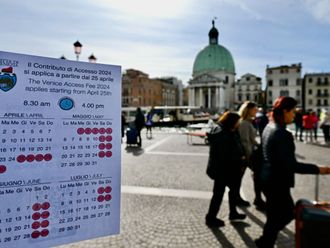Dubai: Dubai’s date with crocodiles will happen by the end of 2017 as the opening the much awaited Crocodile Park has been pushed back once again.
Only 43 per cent of the work on the Dubai Crocodile Park project has been completed and the park opening has been postponed to the end of next year, Juma Al Fuqae, director of the Property Management Department and vice-chairman of the Investment Committee at Dubai Municipality, said in a press release.
The civic body, however, promised a reasonable entry fee for the visitors to see hundreds of reptiles to be housed at the 20,000-squaremetre facility adjacent to Mushrif Park.
Al Fuqae said the park’s opening has been postponed to facilitate the investment company to complete all preparations in order to construct the park in the most modern style. The park is said to be the first of its kind in the Middle East, and is being set up on the lines of the one in France.
Announced in 2012, the park had an initial target of opening by the end of 2013. However, a Dh22 million contract was awarded to a company for the construction of the park in August 2015. At that time, the civic body had estimated 14 months for the completion of the project. In August this year, some reports had said the park would open by the end of 2016.
Facilitating hundreds of crocodiles to live and reproduce naturally, the park will house many types of Nile crocodiles, the largest species that live in fresh water around the world.
Al Fuqae said that the Dubai Crocodile Park would be a tourist destination frequented by tourists. It will also contribute to the preservation of this species of animals in accordance with the CITES (Convention on International Trade in Endangered Species of Wild Flora and Fauna).
“Other than the entertainment aspect, it will provide a great opportunity for all educational institutions, whether schools, universities or research centres, to conduct research and scientific programmes and also organise specialised seminars that will contribute to increased interest in natural science, biology and environment. Visitors will be able to make an entertaining tour of the park watching the crocodiles in a natural setting as hundreds of crocodiles will be spread out in water bodies.”
He said the engineering and construction materials used in the project are environmental friendly, and the park will utilise renewable energy for waste treatment.












